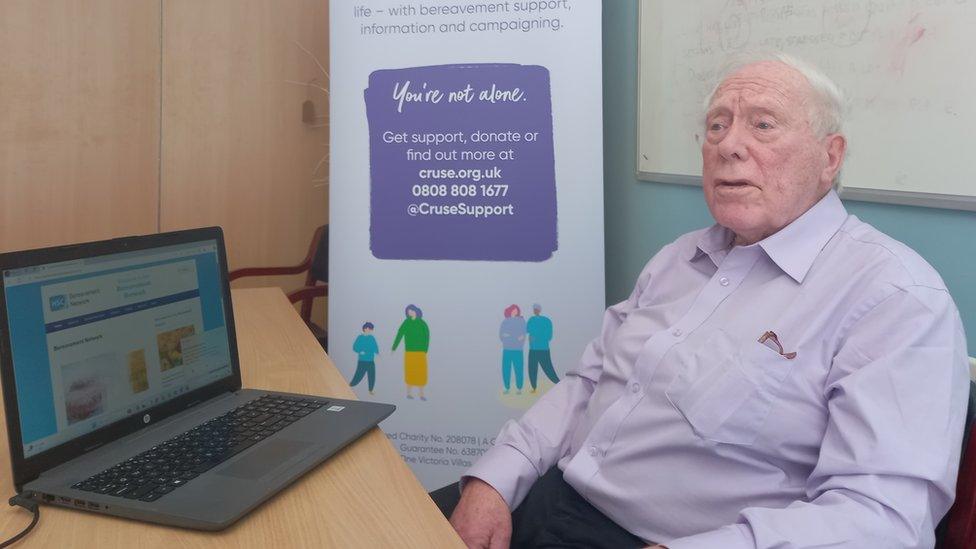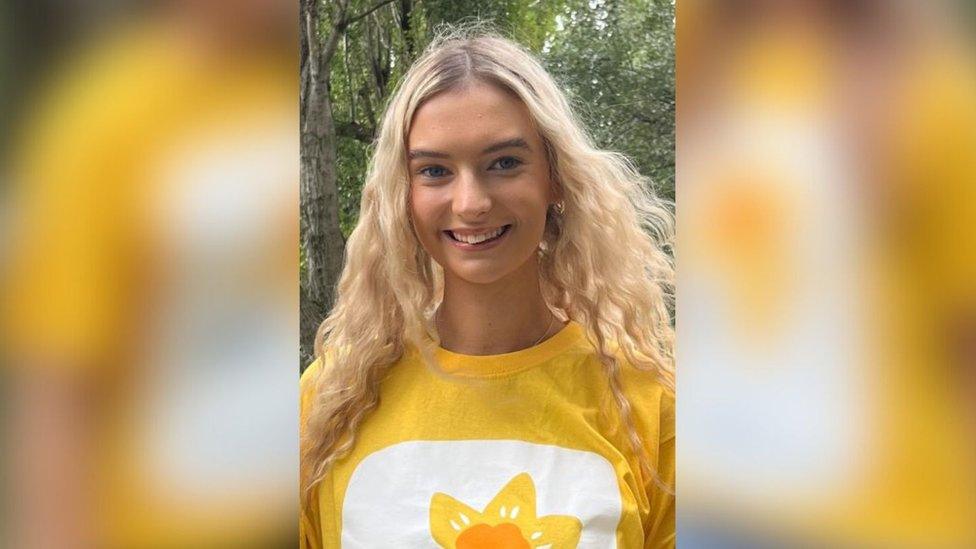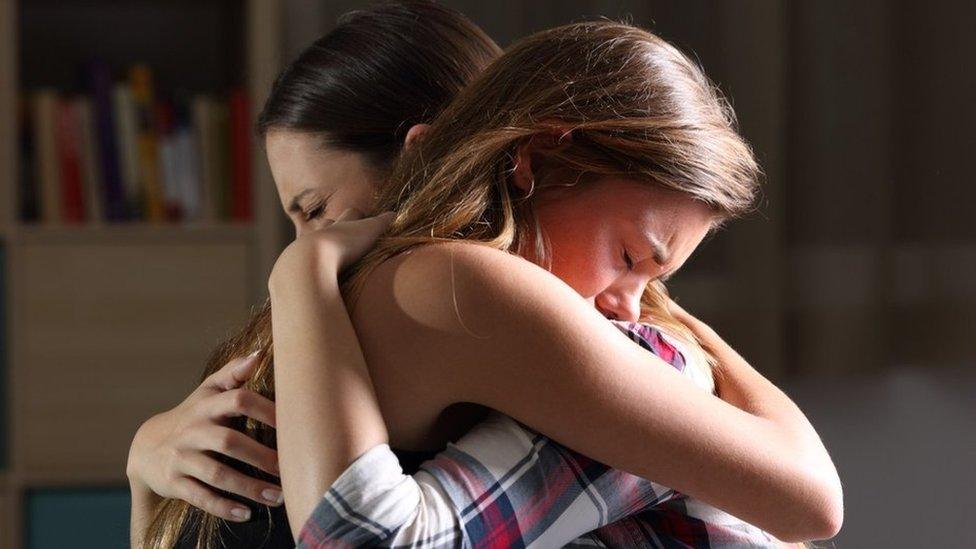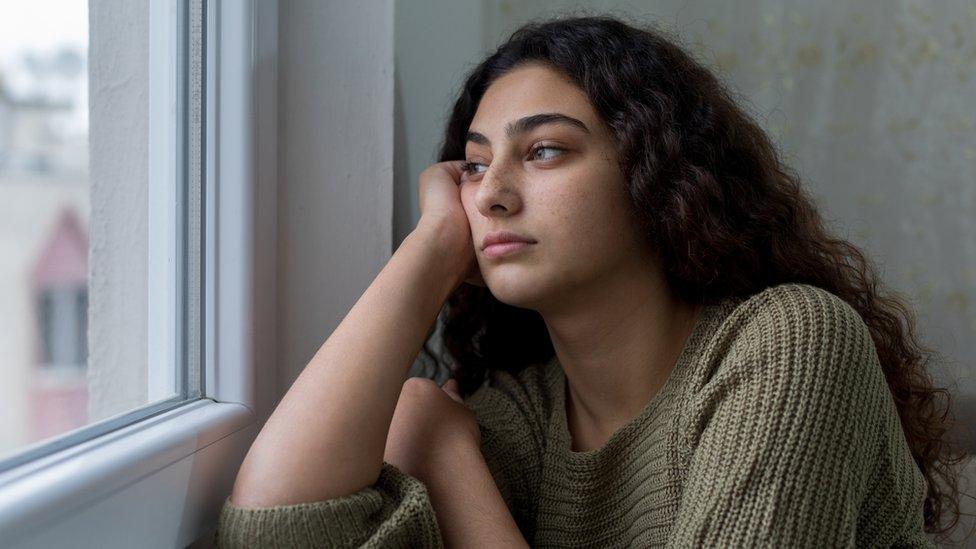Bereavement: Support through grieving process can be a 'lifeline'
- Published

Peter McCarthy, 82, lost is wife Eilish just before their 52nd wedding anniversary in 2014
Support during bereavement can be "a lifeline", a man who lost his wife and son has told BBC News NI.
He was speaking after health Minister Robin Swann launched a website to help people in Northern Ireland through grief.
The Bereaved NI site provides information and support for those experiencing bereavement.
Mr Swann said it would "signpost users to appropriate support at each stage of the bereavement journey".
"Early signposting will help people get the support they need, when they need it, which is critical in making the difficult journey to recovery more achievable," Mr Swann said.
Included in the new website, external is information and support for people who have been bereaved by suicide and those who have suffered a sudden or traumatic loss and includes accounts of lived experiences.
It also provides information on palliative care, pregnancy and baby loss, resources for children and young people and financial and legal advice.
NI's chief medical officer, Professor Sir Michael McBride, said it would bring together all the resources available "in one place" for the general public, carers, and professionals.
Most people will lose a loved one in their lifetime.
But grief can be difficult to process and, for some people, having the right support is an "absolutely necessity".
BBC News NI spoke to some of those who have benefited from bereavement support programmes.
'I was in pieces'
Peter McCarthy said the support he received after the death of his wife Eilish provided a "lifeline".
"After Eilish died, I just went to pieces," Peter, 82, said.
"After she died, one of Eilish's carers continued calling back every other week to keep an eye on me because I think she knew I wasn't doing so well."
Peter felt he couldn't open up to his family about his suffering and said: "As far as my family were concerned, I was doing great.
"But I was in pieces."
'People out there who care'
He was referred to Cruse NI, a bereavement support charity.
"I didn't know that there were services out there to help people who were in situations like mine," he said.
After being told there was a three-month waiting list for one-to-one support he attended a group session aimed at helping people cope with grief.
The first session made him realise there were "people out there who care".
"It gave me hope. Really, it was a lifeline for me," he said.
'A silent partner'
Peter was again confronted with grief when he lost his son Peter-Joseph three years ago.
"It was different when I lost my son. The grief was different," he said.
"Although I wasn't seeing a counsellor for the bereavement of my son, I was part of a friendship group through Cruse.
"The friendship group was like a silent partner for me."

"I wouldn't be feeling how I am today if I hadn't taken the support that was offered to me"
Three years ago Amy Dunne lost her father Gordon just after she turned 20.
"I was about to start my final year at university," she said.
Before he died, Gordon was in the Marie Curie hospice.
"I spent my whole summer basically in the hospice with him before he died," Amy said.
'I didn't know what grief was'
"I felt very isolated because people feel too awkward to talk about it.
"You're just thrown into this new life and you're just supposed to be normal and carry on."
After her father died, Marie Curie offered one-to-one bereavement support.
"It was a strange time," Amy said. "You kind of feel numb. But I knew I wanted to do it."
In the beginning, Amy had weekly bereavement counselling over the phone.
"It helped me understand things a bit more. I felt like my feelings were normalised," she added
"People think you're weak or something for reaching out for help. But it's not like that. It shows that you are taking control of your own grief and not letting it control you."
'Another tool'
Both Peter and Amy welcomed the minister's recognition of the importance of bereavement support.
However, they said websites and open resources only go so far.
Thelma Abernethy, from Cruse NI, said that while "the Bereaved NI website is another useful tool in the toolbox, there needs to be a suite of funded support around that as well".
She described the site as "a really good start" but added tsaid "there has never been greater time when its needed than now, with the impact that Covid has had".
Dr Patricia Donnell of the Northern Ireland Bereavement Network acknowledged the impact of the pandemic on grieving rituals.
She said the NI Northern Ireland Bereavement Network recognised that there has been "a lot of good work by different organisations and groups to develop bereavement resources" and said the new website aimed "to make these easily accessible for all".
Bereaved NI, the new Northern Ireland bereavement support website, can be accessed here, external.
Related topics
- Published6 October 2022

- Published22 August 2022

- Published14 March 2024